
The Second in a series of split discs highlighting the experimental music scene in Berlin, presenting a solo work by Annette Krebs, and a powerful duo for voice and electronics by Christian Kesten and Mark Trayle."
Out of Stock
Quantity in Basket: None
Log In to use our Wish List
Shipping Weight: 3.00 units
Sample The Album:
Christian Kesten-voice
Mark Trayle-electronics, guitar
Anette Krebs-electro-acoustic guitar, voices, electronics
Click an artist name above to see in-stock items for that artist.
Label: Another Timbre
Catalog ID: at73
Squidco Product Code: 18800
Format: CD
Condition: New
Released: 2014
Country: UK
Packaging: Cardstock gatefold foldover
Recorded at various locations on various dates.
"This is the second split disc in the Berlin series of CD's. The second half of the disc is a typically engaged solo from Annette Krebs, one of the key figures in Berlin's music scene for the past 20 years. Using electric guitar, electronics and taped voices, Annette creates two versions of the same piece - a dramatic and challenging work which, as ever, pushes at the boundaries of what is possible and what is expected.
The sketches, detailed worknotes and diagrams that underlay the making of 'rush!' can be seen on her website here They offer a fascinating glimpse into the way Annette develops her music."-Another Timbre
"Important motivations for my music are curiosity and a drive to research. I like to work with combinations of materials and questions which for me haven't yet been answered in a convincing way, and which therefore challenge me.
Having explored and thematised the guitar for the past 20 years - until now just amplifying it, without using effects or digital filters - I now know its potential, its range of colours and noises, and their possible combinations very well. Also, I feel that I have extensively developed the possibilities of my current instrumental setup - which consists of amplified prepared guitar, selected objects, mixing desk and tape - in many pieces and projects. Now I have new ideas, which I can no longer realise with this instrumentation. So I have taken a decision to adapt my setup to these new ideas, instead of continuing with my existing setup and so being partially restricted by it. That is why rush! could be the last solo for my "old" instrumentation."
Annette Krebs, February 2014
Interview with Christian Kesten
First of all could you say a little about your musical background? In what kind of music did you start out, and have you always been based in Berlin?
CK: I was twelve years old when we moved to Berlin. I would say that the creative atmosphere in the West Berlin of the eighties had some influence on me in the sense that I was very open to and had some desire for modern literature, modern art, modern music, and theatre: I saw Peter Stein's Orestie at the Schaubühne when I was fourteen or fifteen, a seven-hour-long play. The Old Men's Choir in particular was very fascinating for me, an early experience of sound in space and composed words.
As a child I learned piano and classical guitar, later even violin a bit. I played in several bands during my adolescence and wrote hundreds of songs. Singing was always something that was very natural to me, though I always hated opera. I studied music then at what is now called UdK. I maybe rather suffered from the conservative spirit there in the beginning. But fortunately Dieter Schnebel was teaching experimental music and experimental music theatre. This was not my first encounter with the experimental though. For example, at eighteen I had written a "neo-dadaist" poem, using concrete poetry in different languages, sound poetry, and specific, repetitive speech melodies. A friend wrote a trombone part to it and we performed it live on the radio.
Working with Dieter Schnebel became a main focus in my music studies, and studying with him soon turned out to involve performing his works. I performed his Maulwerke for the first time when I was 22. That was in Tokyo. Soon after, we premiered Zeichen-Sprache, a cycle for voice and composed movements. Schnebel made a clear distinction between his private composition students-which I didn't dare to be-and his teaching at school. To get a frame for my own work, I founded the autonomous performance art class, in which students from different departments-visual art, theatre, music-of the UdK met. I created my solo work -cycling there, a piece for paper and plastic bags: through the course of the performance I build up a sounding installation site, telling true stories now and then. At this point I was searching for the interdisciplinary at the UdK, for example joining Achim Freyer's class as a performer for a theatre project, and contributing to a language composition. And also Schnebel's projects on Cage or on the Fluxus movement were very important. Cage's Song Books and Schnebel's Maulwerke were our main sources for extended techniques and experiments with voice.
I was deeply into Cage, his works and writings, and considered him to be more radical than, for example, Schnebel. I finished my studies with a musicological thesis on "Silence in the works of Cage and Feldman". Cage's notion of silence, and its implications on the perception of space, how sounds occur in space, its implications on the perception of activity and non-activity, the disciplined actions of producing sounds, deeply marked how I think or experience music.
So was this all happening separately from the improvisation scene within Berlin at the time? Or were you already collaborating with figures from the improv world when you were involved with performing Schnebel and Cage and so on?
CK: It was happening quite separately, simply because I never understood myself as an improviser. However, some friends moved towards improvisation and started creating what would later be called 'Echtzeitmusik', so I knew of it. But "improvisation" was never a relevant word to describe my work. The few collaborations at that time, the nineties, were based on scores. It was later, around 2000 and after, when more collaborative projects were initiated. But we came together on the basis of common aesthetic desires-reduction, silence, non-pitch-based sounds. To what extent the work was improvised or composed was not important. I understood everything as a composition because you can everything bring down to a concept or an open score.
That's interesting. And does that continue to this day? Would you still not think of your work with Mark Trayle as 'improvisation'?
CK: When the gentlemen from Sonic Arts Union-Alvin Lucier, Robert Ashley, Gordon Mumma, David Behrman-were asked in a discussion at the MaerzMusik festival about a possible relation to the Berlin 'Echtzeitmusik', they said: 'But we don't improvise.' I think someone made the mistake in calling 'Echtzeitmusik' improvised music. That's a misunderstanding, I believe. Most of it is based on concepts. And on the other side, because of its openness the experimental canon is far closer to music which calls itself 'improvised' than they might think.
Through the years I've become less strict, and if someone wants to call what I do 'improvised', I can (partly) accept that. In the case of the work with Mark, that's probably my most 'improvised' project so far. The process of editing and choice turns the recorded improvisations into fixed pieces, as Christoph Schiller put it in an interview elsewhere on this website. That might go without saying. I'd be happy if someone would tell me at what point the distinction of being improvised or not could matter. I wonder.
Yes, it's a distinction that has less and less relevance within experimental music, I think. But can you tell us how your work with Mark came about? It isn't a duo that I'd have anticipated - musically or geographically.
CK: Mark and I had met during my stay in Los Angeles in 2007. I was at one of his concerts. I immediately liked his work, and there was a lot of, I hope mutual, sympathy. But it's true, we didn't immediately think that we could work together.
In 2010 Mark visited Berlin, and we wanted to invite him to our concert series 'Labor Sonor' at KuLe. Mark asked about Berlin musicians who he could play with. It was Andrea Neumann and Arthur Rother, my co-curators, who suggested that Mark and I could play duo. As I said earlier, I was never into spontaneous collaborations, so it took them a bit to convince me. But I carefully listened to Mark's work and slowly became sympathetic to the idea. Our short e-mail correspondence beforehand is probably worth mentioning. Mark wrote, 'I don't remember ever improvising with a vocalist before.' I wrote back, 'I may sound very instrumental.' And he wrote, 'Good point.'
We met in the afternoon before the concert. After two minutes of playing, Mark stopped and re-organised his sounds on his computer. (He played another set with Magda Mayas and Chris Heenan, and used completely different sounds.) It turned out to be a great concert, which we both liked very much. And happily the audience, too. [It's on vimeo - http://vimeo.com/14812210]
After that we thought that we should record. I was even thinking of travelling to California, but when Mark came to Berlin briefly in 2012, we booked a day at KuLe, and did it.
Yes, you do sound almost uniquely 'instrumental' as a vocalist, which I personally like more than the expressionist style of vocalising that's common in improvised music at least. Has your vocal style changed much since you worked with Dieter Schnebel on Maulwerke, or is there a lot of continuity in the way you perform and the kind of sounds you work with?
CK: Dieter was one of the first who worked with breathing sounds. The piece Maulwerke is a good exercise in vocal articulation. It doesn't give you concrete sounds, but it rather teaches you a sensitivity or awareness of all that is possible. So there is probably a sort of lineage in terms of training or formation. But although I work mainly with breathing sounds and tongue slaps, my sounds have developed a lot since then. And also the way I use the sounds is completely different. My breathing sounds are even, rather static plateaux, often held for quite a while. I understand each sound as a singular event, which occurs and is placed into silence, or space, or time. I try to avoid process, narrativity, or things like climaxes. And although music proceeds in time, I aim to create music whichfeels like a field or a space where we as performers - and also the listener - can possibly move within it.
But then there are fields inside the field. Analogue to or associated with Barnett Newman's 'colourfields', I attempt to create timbre or Klangfarben fields. So, for example, I will focus for a while on certain material, which I only vary in subtle nuances, and then I step into a new field with different material. In the duo with Mark the fields consist of layers, which meet and intertwine and shift like tectonic plates.
Finally, going back to the experimental music scene in Berlin in general: from the outside it seems to be really flourishing in strong and varied ways. From your perspective within, does it also feel particularly lively and productive at the moment?
CK: Yes, indeed, I think it is very lively and productive. If you have a look at the calendar of echtzeitmusik.de almost every night there is something interesting happening. There are always great things at 'ausland'. The people from 'quiet cue' are very active with concerts and installations. 'N.K.' is doing a series on space and site-specific compositions this year. At 'Labor Sonor' we are exploring what happens when originally not-notated music by composer-performers finds a re-interpretation through someone else, and with transcription and notation possibly coming into play. Every Sunday you can listen to a new acousmatic piece at 'ohrenhoch'. Just to highlight a few. And besides these venues there are groups and individual musicians doing series, like Konzert Minimal playing Wandelweiser composers, or Lucio Capece's concerts exploring perception and spatial music. 'Certain Sundays' invites composers to present their work with open discussions. Also the gallery space 'Errant Bodies' is having more and more events that are worth listening to or thinking about. And these are only the things that interest me. I'm sure you can find a lot of other interesting paths meandering through Berlin.
This is all happening on a very small scale. I'm surprised how idealistic one can be. There exists some funding system, but it is far too little. So there is a network of composer-performers, collaborating, exchanging ideas, supporting each other, doing house concerts or discussion rounds. Some new people come, some stay, some leave. Maybe compared to the nineties or early 2000s, we are in a more reflective phase at the moment. An exploring reflection, not only intellectual, but immediately turned into productivity. I'm curious as to what this leads to.
christian kesten
The Squid's Ear!
Artist Biographies
• Show Bio for Christian Kesten "Christian Kesten is a composer, director, sound and intermedia artist, vocalist and performer. His artistic interest lies in the "in-between", the transitory, the spaces between music and action, music and language, music and sculpture. His work explores the interpenetration of sound and silence, of sound and space, with a focus on the physical activity of creating the sound, and the physicality of the sound itself. His compositions include instrumental, vocal, site-specific works and composed theatre. Kesten is a specialist in vocal experimentation and the performativity of music. He works with an expanded notion of music that integrates elements from performance art, conceptual art and contemporary dance. Kesten received commissions by ensembles like Marinate Fish Impro Committee Beijing, Solistenensemble Kaleidoskop, Maulwerker, Konzert Minimal, Rue du Nord Lausanne, Ensemble Cercles Schweiz, Object Collection New York, AuditivVokal Dresden, Chorakademie Dortmund, WeSpoke London. He realised full-length pieces in spaces like Radialsystem V Berlin, Schauspielhaus Wuppertal, Théâtre 2.21 Lausanne, Witte de With Center for Contemporary Arts, Gropius Bau Berlin, at festivals like MaerzMusik, MINU_festival for expanded music Kopenhagen, Labor Sonor Translating Spaces, MIKROTON Berne, Kunstfest Weimar, Ontological Experimental Series New York, Operadagen Rotterdam. He also created site-specific works for train stations, basements, and the three elevators of Museum for Modern Art MUMOK Vienna. Kesten delivered solo performances for voice, body, objects, video and audio/field recordings in Europe, North America, China and Japan. He received awards and grants by the Berlin Cultural Senate, Ernst-von-Siemens-Musikstiftung, International Society of New Music, Kuenstlerhaus Lukas Ahrenshoop, Villa Aurora Los Angeles, Civitella Ranieri Italy, a.o. His stage directions of new music theatre (Kagel, Schnebel, Cage, Tom Johnson, Makiko Nishikaze, Jacques Demierre, Steven Takasugi and others) have been presented at Akademie der Künste Berlin, Kleines Schauspielhaus Dresden, Theater Bielefeld, Podewil Berlin, Konzerthaus Berlin, Megaron Moussiki Athens, Festspielhaus Hellerau, Kings Place London, at the festivals MaerzMusik Berliner Festspiele, Huddersfield Contemporary Music Festival, Les Amplitudes Switzerland, Tage Théâtre Musical Zurich, Festival des Jardins Musicaux Switzerland and others. He is a member of the ensemble Maulwerker and conceives the series maulwerker performing music, which investigates aspects of musical performativity as a consequence of an expanded notion of music: the compositional material is extended to the body, the space, the situation. Since 2006 he has been co-curator of the Berlin series Labor Sonor for experimental music, film and performance, co-editor of the book "echtzeitmusik berlin. self-defining a scene" (2011) and artistic co-director of the Labor Sonor festivals "Translating Music" (2015), "Moving Music" (2016) and "Choreographing Sound" (2018). Teaching assignments and guest lectures in Europe, Israel, China, North and South America." ^ Hide Bio for Christian Kesten
2/25/2026
Have a better biography or biography source? Please Contact Us so that we can update this biography.
Track Listing:
1. I 10:18
2. II 16:46
3. III 6:50
4. IV 6:06
5. version 1, with taped noises outside the studio 13:26
6. version 2 15:35
Improvised Music
Electro-Acoustic
Electro-Acoustic Improv
European Improvisation and Experimental Forms
Trio Recordings
Acoustmatic Electronic Composition
Search for other titles on the label:
Another Timbre.


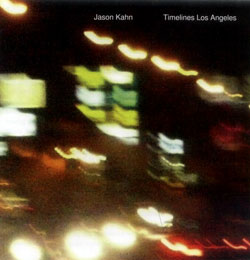

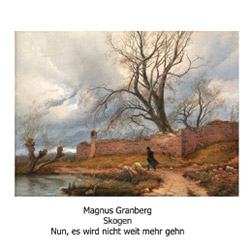
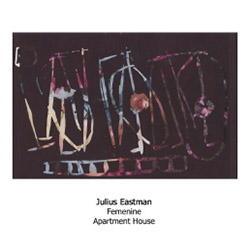
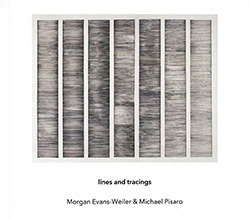



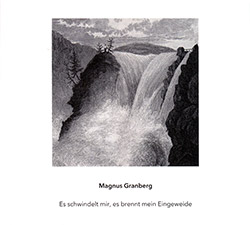






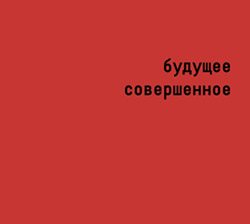




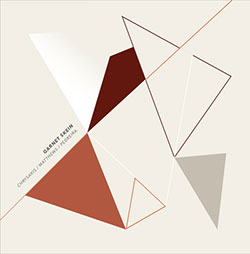



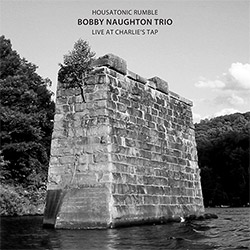


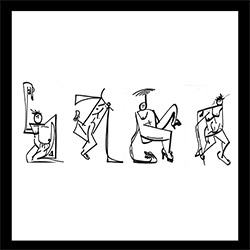
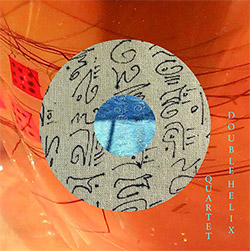


![Aries House Zaes: Network Friction [VINYL]](https://www.teuthida.com/productImages/misc4/37242.jpg)
![Bailey, Derek / Han Bennink / Evan Parker: Topographie Parisienne (Dunois, April 2nd, 3d & 4th, 1981)[4CDs]](https://www.teuthida.com/productImages/misc4/37246.jpg)
![Lindorff-Ellery, Evan: Light Sound Falling [CASSETTE w/ DOWNLOAD]](https://www.teuthida.com/productImages/misc4/37043.jpg)
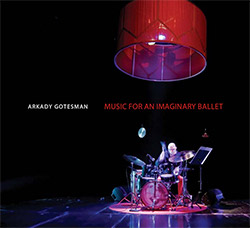
![Lindorff-Ellery, Evan / Naomi Juniper: Studio, Creek [CASSETTE W/ DOWNLOAD]](https://www.teuthida.com/productImages/misc4/37044.jpg)
![Koyoltzintli and Friends: Wild Fire Clay Percussion Group [CASSETTE W/ DOWNLOAD]](https://www.teuthida.com/productImages/misc4/37045.jpg)

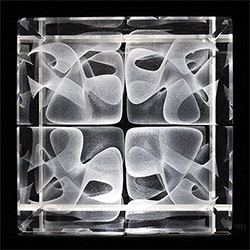
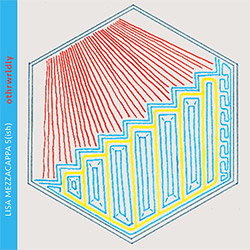
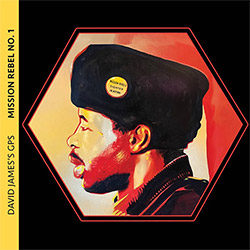
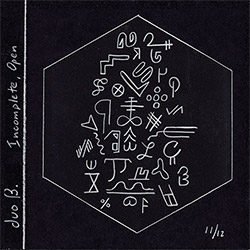


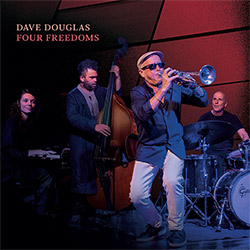
![Hearsay (Allen Moore, Ishmael Ali, Bill Harris): Glossolalia [CASSETTE]](https://www.teuthida.com/productImages/misc4/34531.jpg)
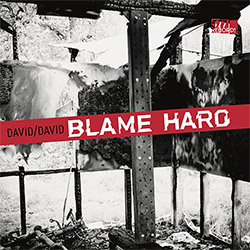
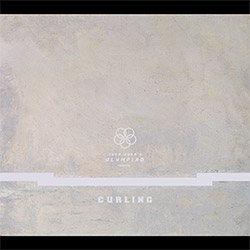
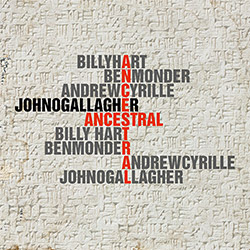




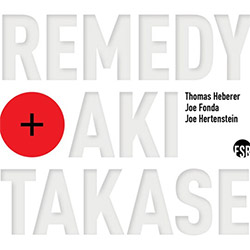

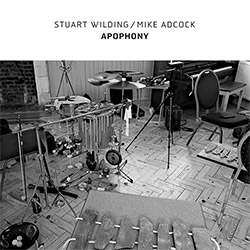

![Ali, Ishmael (Ishmael / Wilkerson / Wilkes / Baker / Tong / Harris): Burn the Plastic, Sell the Copper [VINYL]](https://www.teuthida.com/productImages/misc4/37105.jpg)
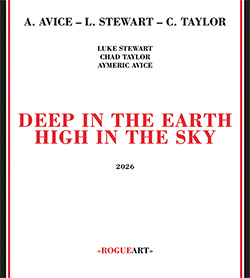
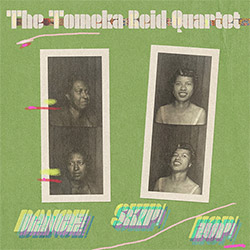
![Reid, Tomeka Quartet (w/ Roebke / Halvorson / Fujiwara): Dance! Skip! Hop! [VINYL]](https://www.teuthida.com/productImages/misc4/37094.jpg)

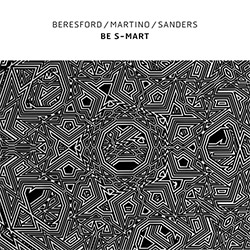
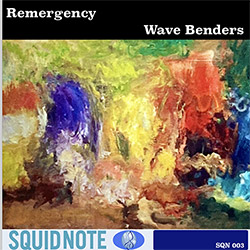
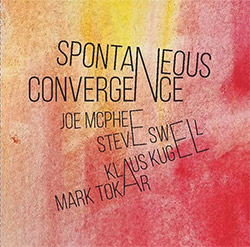
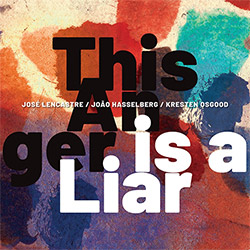


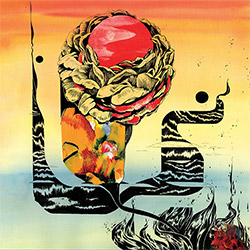
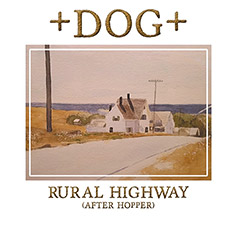
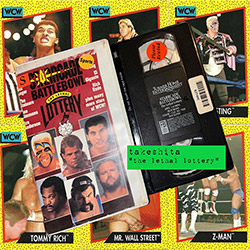
![Coleman, Rodger: Journey to Brno [CASSETTE + DOWNLOAD]](https://www.teuthida.com/productImages/misc4/37175.jpg)

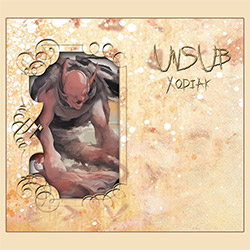

![Allbee, Liz: Breath Vessels [VINYL]](https://www.teuthida.com/productImages/misc4/37012.jpg)
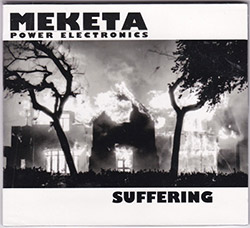
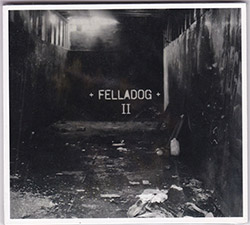

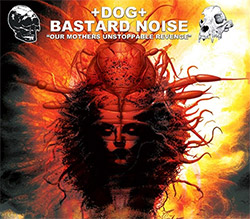

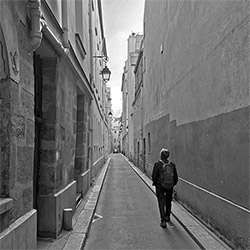
![Belorukov, Ilia / Alex Riva: Wrestling For Futility [CASSETTE w/DOWNLOAD]](https://www.teuthida.com/productImages/misc4/36994.jpg)


![Genthon, Anouck / Lionel Marchetti: Suite Blanche [2 CDs]](https://www.teuthida.com/productImages/misc4/36642.jpg)
![Toeplitz, Kasper T.: Erosions Programmees [CD + BOOKLET]](https://www.teuthida.com/productImages/misc4/36639.jpg)
![Gate, The : Almost Live [CASSETTE + MAGAZINE]](https://www.teuthida.com/productImages/misc4/36836.jpg)






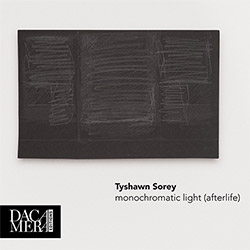

![Feldman, Morton / GBSR Duo w/ Taylor MacLennan: Trios [6 CD BOX SET]](https://www.teuthida.com/productImages/misc4/37020.jpg)
![Frey, Jurg : Composer, Alone [3 CDs]](https://www.teuthida.com/productImages/misc4/36927.jpg)








![Frey, Jurg with ensemble]h[iatus: Je Laisse A La Nuit Son Poids D](https://www.teuthida.com/productImages/misc4/36988.jpg)




![Pisaro-Liu, Michael: Within (2) / Appearance (2) [2 CDs]](https://www.teuthida.com/productImages/misc4/36831.jpg)










![Musicworks Magazine: #151 Summer 25 [MAGAZINE + CD]](https://www.teuthida.com/productImages/misc4/36559.jpg)


![Zorn, John: The Song of Songs [CD + CD BOOK]](https://www.teuthida.com/productImages/misc4/36923.jpg)

![Coultrain: Mundus [COLORED VINYL]](https://www.teuthida.com/productImages/misc4/33056.jpg)
![Hprizm: Signs Remixed [COLORED VINYL]](https://www.teuthida.com/productImages/misc4/30635.jpg)
![Halls Of the Machine: All Tribal Dignitaries [CASSETTE w/ DOWNLOAD]](https://www.teuthida.com/productImages/misc4/36134.jpg)



![Koenjihyakkei: Live at Club Goodman [2 CDs]](https://www.teuthida.com/productImages/misc4/36111.jpg)

![Sorry For Laughing (G. Whitlow / M. Bates / Dave-Id / E. Ka-Spel): Rain Flowers [2 CDS]](https://www.teuthida.com/productImages/misc4/35985.jpg)

![Rolando, Tommaso / Andy Moor : Biscotti [CASSETTE w/ DOWNLOADS]](https://www.teuthida.com/productImages/misc4/36106.jpg)


![Electric Bird Noise / Derek Roddy: 8-10-22 [CD EP]](https://www.teuthida.com/productImages/misc4/35970.jpg)








![Elephant9 : Mythical River [VINYL]](https://www.teuthida.com/productImages/misc4/34624.jpg)



![Elephant9 with Terje Rypdal: Catching Fire [VINYL 2 LPs]](https://www.teuthida.com/productImages/misc4/35355.jpg)
![Coley, Byron: Dating Tips for Touring Bands [VINYL]](https://www.teuthida.com/productImages/misc4/17906.jpg)

![Lost Kisses: My Life is Sad & Funny [DVD]](https://www.teuthida.com/productImages/misc4/lostKissesDVD.jpg)